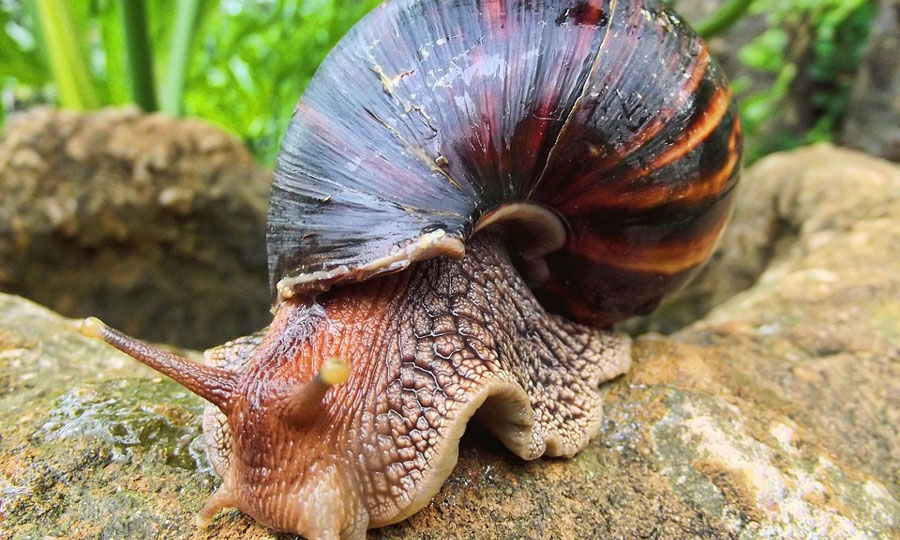Florida Department of Agriculture, USDA Eradicate Nearly 170,000 Giant African Land Snails in South Florida’s Miami-Dade, Broward Counties

TALLAHASSEE, FL – For more than eight years, the Florida Department of Agriculture and Consumer Services (FDACS) and the U.S. Department of Agriculture (USDA) have been working cooperatively to eradicate the giant African land snail from Miami-Dade and Broward Counties. During that time, over 168,500 snails have been collected in 32 core areas of Miami-Dade County, and in one area of Broward County.
To date, program officials have decommissioned 23 of the 32 quarantined core areas of giant African land snails in South Florida. Core areas are decommissioned after intensive protocols involving property-by-property reviews are met and agreed upon by a team of scientists and administrators from FDACS and the USDA.
The protocol includes 17 months of inspections and a minimum of 26 treatments, an additional 19 months of inspections with no treatments and a minimum of one inspection each by a detector dog team and a night inspection team. The total time from the last live snail detection on a positive or adjoining property to decommissioning is 36 months.
“We’re continuing to be diligent in our efforts to safeguard Florida from the establishment of giant African land snails,” said Agriculture Commissioner Nicole “Nikki” Fried. “By conducting special inspections and collaborating with the USDA, we’re on the path to eradicating these dangerous pests in South Florida.”
Over the summer months, the Department’s Division of Plant Industry (DPI) has responded to several interceptions of giant African land snails. Recently, cargo shipping containers coming into Port Canaveral from the coast of Africa were quarantined after reports of a giant African land snail infestation on board the ship.
Over 100 snails were found on 81 containers offloaded. The shipping containers were thoroughly inspected by Mellon, the giant African land snail program detector dog and multiple inspectors. The property was treated to ensure all snails were eliminated from the area. DPI worked with U.S. Customs and Border Protection (CBP) and the USDA to intercept these snails and avoid introduction to the state and immediately eradicated the infestation. The ship was disallowed from making port in Houston, its next port of call.
“The Division of Plant Industry’s GALS K-9 unit is a critical part of our division’s ability to react quickly to incursions like this instance in Port Canaveral,” said Dr. Trevor Smith, Director of the FDACS Division of Plant Industry.
FDACS, CBP, and the USDA continue to work together in partnership to safeguard the country from the giant African land snail, which is a devastating agriculture pest and public health threat.
Scientists consider the giant African land snail to be one of the most damaging snails in the world, because it is known to consume at least 500 different types of plants, and can pose a serious health risk to humans. These snails could be devastating to Florida agriculture and natural areas because they cause extensive damage to tropical and subtropical environments. Giant African land snails are illegal to import into the United States without a permit. If you have seen one of these snails, please report it to the Division of Plant Industry (DPI) helpline 1-888-397-1517. For more information, visit our website.



Comments are closed.